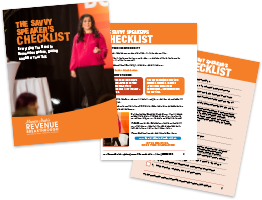Part 5: Women and Money: What Will Happen if I Get Successful?
So here it is — the last article in a series about women entrepreneurs and money — one that I’ve so enjoyed writing! For the whole series see the links below:
Part 1: The Mess We’re In With Money: Why We Struggle To Keep The Money We Make
Part 2: Women and Money: The Prince Syndrome
Part 3: Women and Money: The Woman’s Role
Part 4: Women and Money: The Myth of the Superwoman and Money
This article is perhaps the most obvious, and also the hardest to write.
What actually happens when we as women make more money? What will happen if we get successful?
Yes, there’s the host of good things:
- Paying off the bills.
- Being able to save.
- Putting money away for schooling.
- Taking the family on vacation.
- Being able to eat out more often.
But if it were only about the good things — every woman entrepreneur would be making great money.
So we have to look at the deeper fears — the “price of success.” Underlying fears such as:
- My husband will look at me differently if I make more money than him.
- If I start making money, then I will have to contribute to the family more — and I don’t want to do that.
- If I make more money — then I will still have all my family responsibilities — and I just can’t handle it all.
- What if I don’t get as much support from my family if I’m making more money?
In short; What Will Happen if I Get Successful?
I’ve been coaching women entrepreneurs for 15 years now, and for every woman who wanted more success, there was always a deep underlying reason that she was slowing her own success.
Perhaps you too will resonate with one of the fears above.
If you do — you’re not alone.
We all have a set of roles in our families. Roles that stem from our identities. Who makes the money. Manages the house. Who is in charge of the kids. Who takes care of the pets.
And getting more serious about your business and making more money can really cause a shuffling of identities and traditional roles.
In so many cases, we don’t even realize it, like the woman below:
The woman at the mic was just shy of 30 years old. As she spoke, she talked about how angry she was at her husband for not making more money. How the lack of money was ruining their marriage. I asked her, “Do you actually have a lack of money? Are you not doing things you want to do?”. She thought about it for a moment, and then said, “No, I mean we aren’t struggling.”
So I asked her what the real problem was and she responded, “I’m the primary breadwinner. I make more money then he does. And my mom told me that should never happen!”
Again — she was angry about something that she didn’t even realize she had agreed with. And it was affecting her marriage.
I have other clients who suddenly don’t have time to make a homemade dinner each night. Or they don’t have the time to pick up the kids each day.
With a business getting busier — roles and responsibilities need to shift, perhaps be shared in a different way. Or hire new help.
So what’s a woman to do? Three steps: Permission, Communication, Actions.
Permission
First, it starts with understanding that as your business grows and changes, it’s okay for your responsibilities to shift. You will be needed more by your business. Which means you may need to re-organize your home responsibilities.
There’s so much guilt that comes with this step!
And fear — what if people in your life stop loving you?
This is totally natural. And there’s nothing easy or quick about this process. But the first step is to give yourself: Permission.
Permission to shift. To let go of some responsibilities. Permission to say “No” to all of those things that come up (like leading the bake fair at school or volunteering at church). Permission to hire new people to support you (like a cleaning lady).
This doesn’t happen overnight. But know that you’re not alone. And this step helps so much when you can talk to other women about how they are handling it. It’s why I highly suggest you come and join us at the Master Your Money Event.
Communication
The second step starts with talking. Talking to your partner. To your kids. Talking to your friends. Letting them know what’s going on in your business and what you need more of (or less of).
There’s nothing here that says they will listen, or give you exactly what you want. But being able to communicate about what you want, especially before you hit your tipping point is so important.
This looks like:
- Asking your kids to call only during non-work hours (unless there is an emergency).
- Asking your partner to respect that you need extra babysitter hours.
- Letting your teenager know that you would love if she could figure out some rides for herself to and from some of her events.
- Asking your partner to be visibly excited when you get new clients (maybe even giving them the words to use).
Again, I don’t want to suggest that this is “light” or “easy.” It’s not. And it will often hit your triggers. But I can tell you that it works. And I have hundreds of clients that have created new boundaries with communication. The key is to do this before you get angry and start lashing out. 🙂
Actions — Saying No and Getting More Support
Okay, this is the part where you actually have to start taking things off your plate! You can’t just fill a rock-filled bowl with more rocks. I promise you the rocks that fall off will be accidents you won’t want! Like forgetting to pick a kid up from school!
This part looks different for everyone, but here are some suggestions:
- Letting go of, or not continuing, volunteer leadership positions at work, school or in the community.
- Saying “no” to extra volunteer responsibilities at your kids’ schools.
- Finding more rides for your family members so they aren’t dependent on you for every pick-up.
- Hiring a cleaning person.
- Hiring a personal assistant to help with tasks around the house like returns, bill paying, organizing, etc.
- Getting the groceries delivered.
- Signing up for meal kit plans (so you don’t have to find recipes or pick up groceries).
- Hiring an in-person assistant to help with filing, organizing and entering things for your business.
- Hiring a tutor (so you don’t have to help with homework).
- Sending your laundry out.
- Getting extra pet care (so you aren’t walking your dog).
I know that you might be thinking — but Monica I can’t afford this stuff. And if you are just starting your business, perhaps it would be helpful to focus on sales training and start generating some revenue first.
But keep this in mind. If you hire someone for $15 an hour for 4 hours a week, it will cost you $240 a month. That will create 16 hours of time for you. Do you think it’s possible that you could generate more than $240 a month in 16 hours of time? YES! Of course you can, especially if you are in one of my programs.
Permission, Communication and Action — the 3 steps that you will keep doing over and over again. This is a journey that starts as soon as you start your business and keeps going as you grow it and grow it.
Here’s the good news: it gets WAY easier over time and becomes quite NATURAL. Over time you’ll get so good at evaluating your time, you wouldn’t dream of taking something on that is not in your role or below your current pay grade. And you’ll be doing so well in your business that your family will cheer you on — especially when they see how happy the new business combined with the new boundaries is making you.
You’ll also get better at communicating through breakdowns and turning them into breakthroughs.
And you’ll be acting on the secret that so many successful women entrepreneurs know — that the perfect, superwoman appearance is backed by attention to 3 areas: giving themselves permission to change, allowing for open communication, and taking actions that support their growth.
Here’s to you — you powerful, wealthy, beautiful woman! Go get ’em!
For more support, encouragement, and amazing resources; join our Facebook group.








